Mistakes Don’t Define You: A Message to My Son
12 Oct, 2024 | 3 min
Dear Noah,
As you approach your seventh birthday, I want to share something really important with you, something I hope you will carry with you as you grow. You’re going to make mistakes in life—we all do. But I want you to know that making a mistake doesn’t make you a bad person.
Sometimes, when you say something unkind to your siblings, or when you make a choice you later regret, you tell me, “I’m a bad person” or “I’m a meanie.”
And every time, I remind you: this is not true.
What you do—even if it’s wrong—never takes away from your worth. Your worth is always there, no matter what. Yes, sometimes we do things that hurt others, and it’s important to recognize that, apologize, and learn from it. But your actions don’t define you. You are not your mistakes.
Owning Your Actions, But Not Letting Them Own You
There’s a big difference between recognizing a mistake and letting that mistake become who you are. When you do something wrong, you are still the wonderful, kind, and loving person that I know you to be. It’s okay to admit when you’ve made a mistake. Saying sorry is part of growing and improving. It’s a way to show that you care about the people around you—especially your siblings.
When I tell you that something you said wasn’t okay or that you shouldn’t lie about something, it’s not because you’re a bad person. It’s because I want to help you learn the difference between right and wrong. I want to help you understand how your actions impact others. But none of that ever changes how much I love you.
Shame vs. Guilt: Why It’s Hard to Say Sorry
I know it can be hard to say sorry. Sometimes, when we know we’ve hurt someone, a heavy feeling creeps in. That feeling is shame, and it’s different from guilt. Guilt tells us, “I’ve done something wrong, and I can make it right.” But shame tries to convince us that we are the problem. It tells us, “I am wrong,” or “I am bad.” That’s why it feels so hard to apologize—it’s as if saying sorry confirms that we’re not good enough.
But here’s the truth: saying sorry doesn’t make you less worthy or less lovable. It shows strength. It shows that you’re willing to own up to your actions and that you want to do better.
When you feel triggered and say or do something you later regret, I want you to remember this: your worth is untouchable. The love I have for you is unconditional. You can always apologize, make amends, and try again tomorrow. Mistakes are part of learning, but they will never define who you are.
Learning to Respond, Not React
One of the most powerful things we can learn is how to respond to our emotions instead of reacting impulsively. When you feel triggered, it’s easy to say or do something you don’t mean. But with practice, you can learn to pause, reflect, and choose a different action. When you take ownership of your actions, you empower yourself to make better choices next time.
You are the owner of your actions, but those actions don’t define your worth. You are worthy, loved, and important—no matter what mistakes you make along the way.
Je t’aime d’amour,
Tania
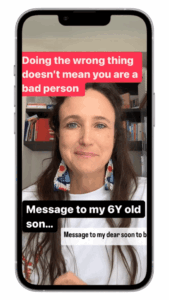
The Lesson for All of Us: Mistakes Don’t Define Our Worth
As parents, we often watch our children struggle with feelings of shame when they make mistakes. It’s heartbreaking to hear them say, “I’m a bad person,” because we know they are so much more than their actions. Part of our job is to help them understand that their worth is intrinsic—it’s not tied to whether they get it right every time.
We need to teach our children, and remind ourselves, that it’s okay to make mistakes. What matters is how we grow from them. Owning our actions, apologizing, and trying to do better next time is how we build stronger relationships and more meaningful connections. And through that process, we can show our kids that their mistakes don’t diminish their value as people—they are always loved, always worthy.
Let’s commit to helping our children see their worth for what it is—unchangeable, no matter what mistakes they make.
Share this blog on social!
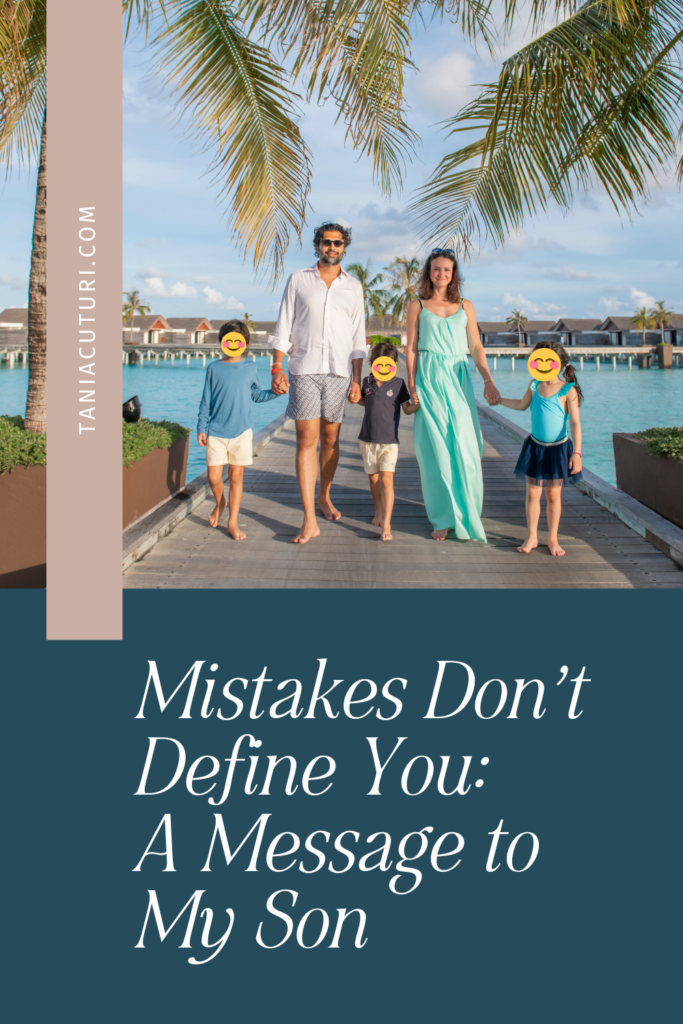
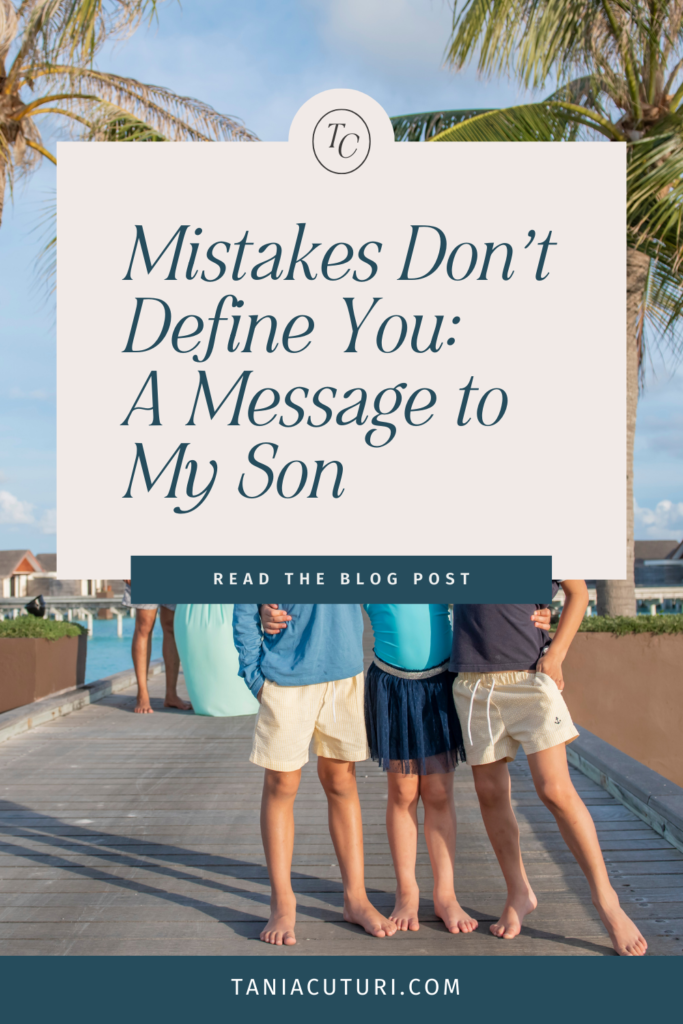
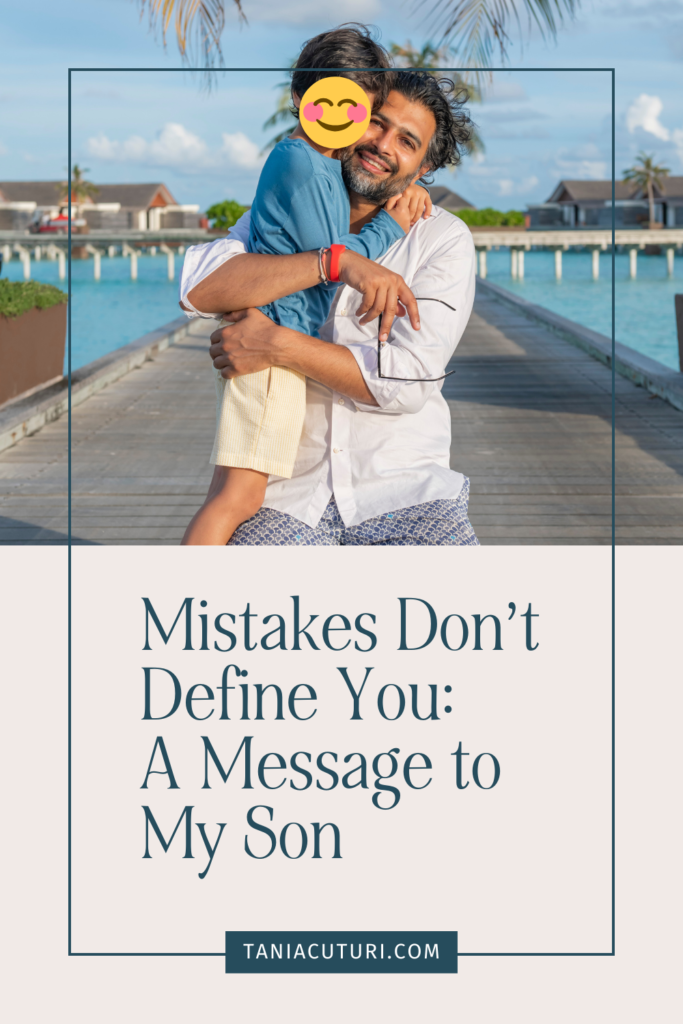

Meet Tania!
With three energetic kids, I know what it’s like to have to juggle your career goals and desire to be a good parent. That’s why I’m so passionate about helping working mums manage your time in the best way, so you can spend quality time with your kids and still find the courage to go after what you want in life.
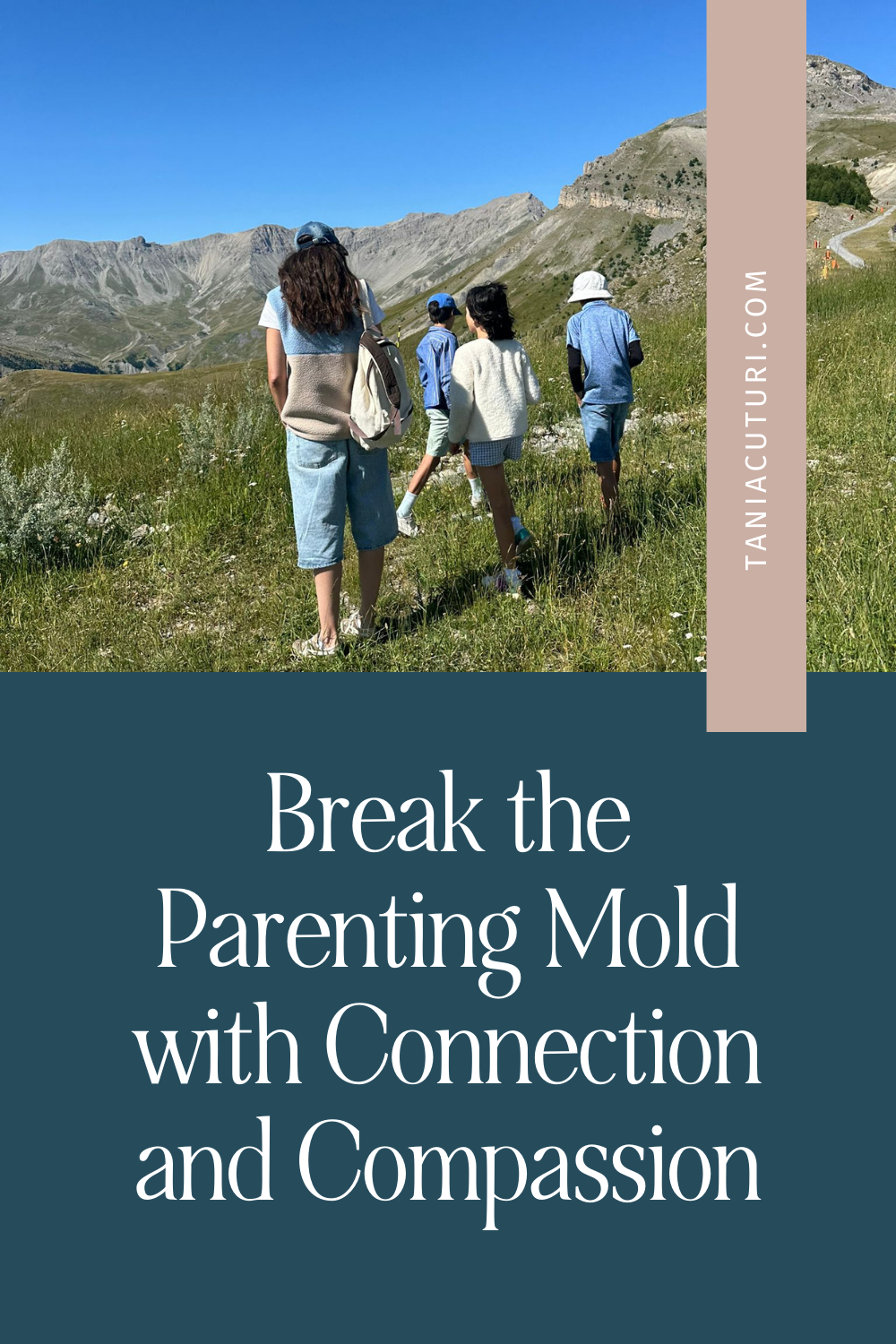
Break the Parenting Mold with Connection, Confidence, and Compassion
04 Oct, 2025
As parents, we all come into this journey with expectations: of ourselves, of our children, and of what family life “should” look like. But what happens when your child doesn’t quite fit the mold? When their behavior or way of communicating doesn’t line up with what you imagined, or what society tells you is “normal”?… Continue reading Break the Parenting Mold with Connection, Confidence, and Compassion

The Myth of “This Is the Only Path” for High-Performing Professionals
20 Sep, 2025
There’s a belief I see often in high-performing professionals, especially those working in fast-paced, competitive industries like finance, law, or tech. It’s the belief that “this is the only path” that you can take. One version of success. One way to move forward. And the only “good” choice is the one that keeps you on… Continue reading The Myth of “This Is the Only Path” for High-Performing Professionals
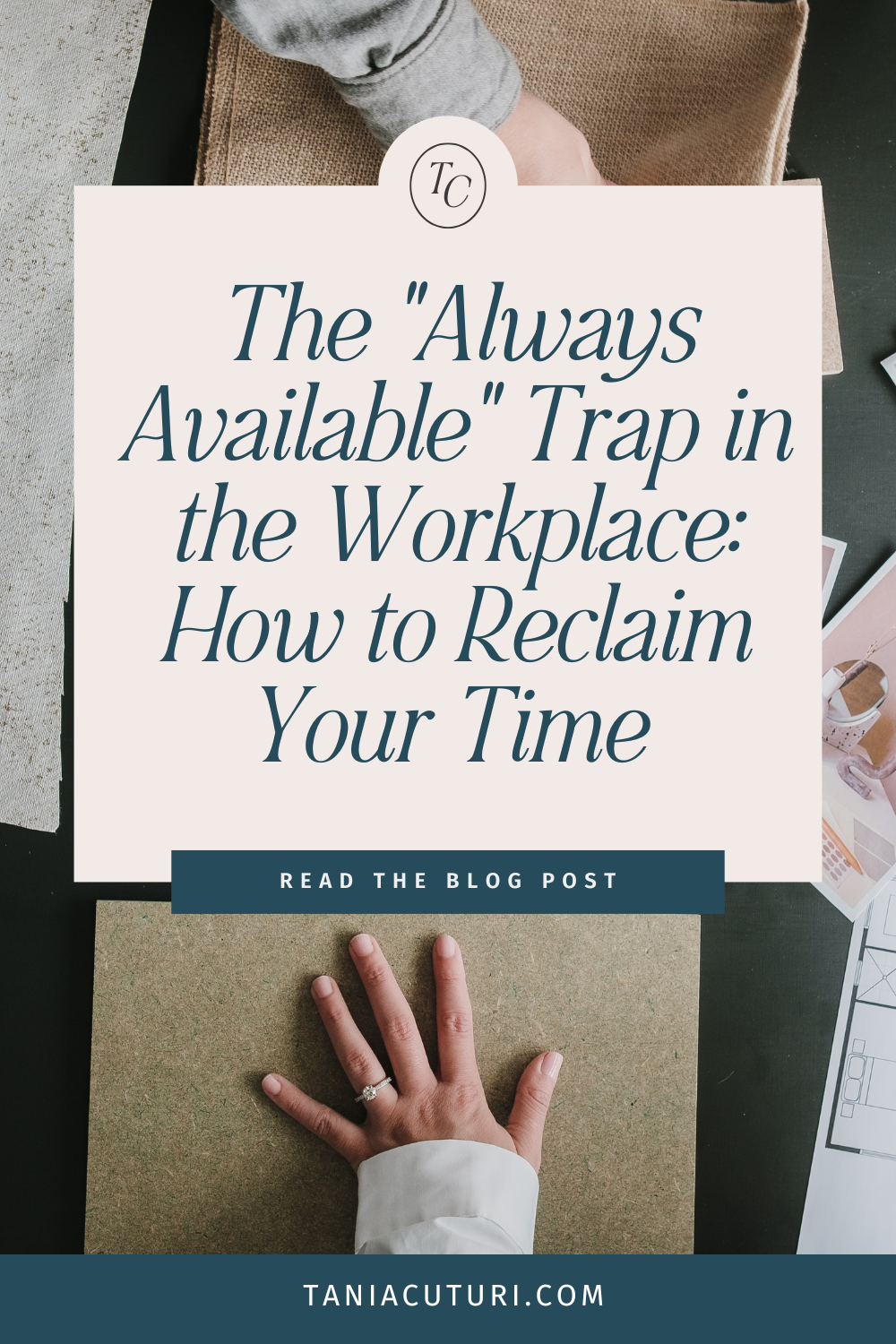
The “Always Available” Trap in the Workplace: How to Reclaim Your Time
06 Sep, 2025
There’s a kind of pressure that doesn’t always get talked about, but most of us feel it: The pressure to be “always available”. Especially in high-achieving work cultures, there’s this expectation (spoken or not) that you should respond quickly, drop what you’re doing, or stay late, just in case you’re needed. And if you don’t,… Continue reading The “Always Available” Trap in the Workplace: How to Reclaim Your Time







